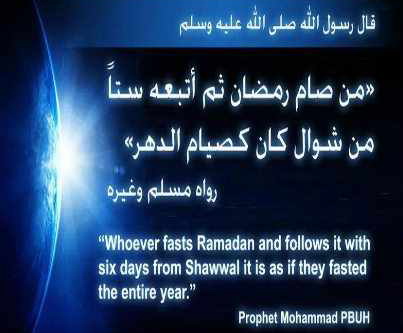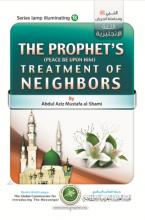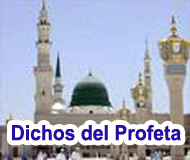Relataron Abu Darr, Yundub Ibn Yunadah y Abu Abddur-Rahman, Mu'adh Ibn Yabal (que Allah esté complacido con él) que el Mensajero de Alá (la paz sea con él) dijo: “Temed a Alá dondequiera que os encontréis, y luego de un mal haced un bien para que borre el primero, y tratad a la gente con buen carácter”. (Transmitido por Tirmidhi, quien dijo que es un Hadiz Hasan (aceptable), y en algunas copias dice: Es un Hadiz Hasan-Sahih (aceptable y auténtico)
El profeta de la misericordia Site
Liga del Mundo Islámico - Organismo Mundial para la Presentación del Mensajero
History has recorded the appearance and deeds of many religious leaders: Moses, Jesus Christ, Zoroaster, and Abraham, to name just a few. There have also been many self-proclaimed prophets and messengers, each of whom has claimed to bring a divine revelation for mankind. Some have proven to be false, and others have been forgotten. But there is one religious leader who stands alone, an unlettered man who transmitted a revelation from God that literally changed the course of history and the destinies of a major portion of mankind: Muhammad, the Prophet and Messenger of God.
ENCYCLOPEDIA BRITANNICA confirms: "...a mass of detail in the early sources shows that he was an honest and upright man who had gained the respect and loyalty of others who were likewise honest and upright men." (Vol. 12) B
ERNARD SHAW said about him: "He must be called the Savior of humanity I believe that if a man like him were to assume the dictatorship of the modern world, he would succeed in solving its problems in a way that would bring it much-needed peace and happiness." (The Genuine Islam, Singapore, Vol. 1, No. X 1936)
He was by far the most remarkable man that ever set foot on this earth. He preached a religion, founded a state, built a nation, laid down a moral code, initiated numerous social and political reforms, established a powerful and dynamic society to practice and represent his teachings, and completely revolutionized the worlds of human thought and behavior for all time to come.
"HIS NAME IS MUHAMMAD" May the Peace of God Be upon Him (PBUH) Born in Arabia in the year 570 CE, Muhammad started his mission of preaching Islam, the religion of truth and the submission of man to one God, at the age of forty and died at the age of sixty-three. During the short twenty-three year period of his prophet hood, Muhammad (PBUH) changed the entire Arabian peninsula forever. Within the space of one generation, the vast majority of people went from paganism and idolatry to devout and strict monotheism, from tribal quarrels and wars to national solidarity and cohesion, from drunkenness and debauchery to sobriety and piety, from lawlessness and anarchy to a lifestyle characterized by discipline, from moral bankruptcy to the highest standards of moral excellence.
Human history has never seen such a complete transformation of a people or a place before or since-and just imagine that all of these unbelievable wonders took place in just over two decades and because of the efforts of one man. The renowned historian Lamartine, when speaking on the essentials of human greatness, wonders: "If greatness of purpose, smallness of means and astounding results are the three criteria of human genius, who could dare to compare any great man in modern history with Muhammad? The most famous men created arms, laws and empires only They founded, if anything at all, no more than material powers which often crumbled away before their eyes. This man moved not only armies, legislation, empires, peoples and dynasties but millions of men in one-third of the then-inhabited world; and more than that, he moved the altars, the gods, the religions, the ideas, the beliefs and souls.... his forbearance in victory, his ambition, which was entirely devoted to one idea and in no manner striving for an empire; his endless prayers; his mystic conversations with God; his death and his triumph after death; all these attest not to an imposture but to a firm conviction which gave him the power to restore a dogma. This dogma was two-fold: the unity of God and the immateriality of God-the former telling what God is, the latter telling what God is not; the one overthrowing false gods with the sword, the other starting an idea with the words. Philosopher, orator, apostle, legislator, warrior, conqueror of ideas, restorer of rational dogmas, of a cult without images, the founder of twenty terrestrial empires and of one spiritual empire: that is MUHAMMAD. As regards all the standards by which human greatness may be measured, we may well ask IS THERE ANY MAN GREATER THAN HE?" (Lamartine: Histoire de la Turquie, Paris, 1854Vol.11, pp 276- 277).
The world has had its share of great personalities. But these were one-sided figures who distinguished themselves in only one or two fields, such as religious thought or military leadership. The lives and teachings of these great personalities are shrouded in the mists of time. There is so much speculation about the time and place of their birth, the mode and style of their life, the nature and detail of their teachings, and the degree and measure of their success or failure that it is impossible for humanity to reconstruct accurately the lives and teachings of these men. Not so this man The Prophet Muhammad (PBUH) accomplished so much in so many fields of human thought and behavior in the fullest blaze of human history. Every detail of his private life and public utterances has been accurately documented and faithfully preserved to our day. The authenticity of the records so preserved are vouched for not only by the faithful followers but even by his prejudiced critics. Muhammad (PBUH) was a religious teacher, a social reformer, a moral guide, an administrative colossus, a faithful friend, a wonderful companion, a devoted husband, a loving father-all in one. No other man in history ever excelled or equaled him in any of these different aspects of life- but it was only for the selfless personality of Muhammad (PBUH) to achieve such incredible perfection.
Mahatma Gandhi, speaking on the character of Muhammad (PBUH), says in Young India: "I wanted to know the best of one who holds today undisputed sway over the hearts of millions of mankind....I became more than convinced that it was not the sword that won a place for Islam in those days in the scheme of life. It was the rigid simplicity, the utter self-effacement of the Prophet, the scrupulous regard for his pledges, his intense devotion to his friends and followers, his intrepidness, his fearlessness, his absolute trust in God and in his own mission. These and not the sword carried everything before them and surmounted every obstacle. When I closed the 2nd volume (of the Prophet's biography) I was sorry there was not more for me to read of the great life."
Thomas Carlyle, in his Heroes and Hero-worship, was simply amazed as to "how one man single-handedly could weld warring tribes and wandering Bedouins into a most powerful and civilized nation in less than two decades."
Diwan Chand Sharma wrote: "Muhammad was the soul of kindness and his influence was felt and never forgotten by those around him. " (D. C. Sharma, The Prophets of the East, Calcutta 1935, pp. 12)
Edward Gibbon and Simon Ockley, speaking on the profession of Islam write: "I believe in one God, and Mahomet, a Apostle of God" is the simple and invariable profession of Islam. The intellectual image of the Deity has never been degraded by any visible idol; the honor of the Prophet has never transgressed the measure of human virtues; and his living precepts have restrained the gratitude of his disciples within the bounds or reason and religion." (History of the Saracen Empires, London, 1870, p. 54).
Muhammad was nothing more or less than a human being But he was a man with a noble mission, one which was to unite all human beings on the worship of the one and only God and to teach them the way to honest and upright living based on the commands of God. He always described himself as "a servant and messenger of God," and every single one of his actions proclaimed loudly the truth of this phrase. Speaking on the aspect of equality before God in Islam, the famous Indian poetess Sarojini Naidu says: "It was the first religion that preached and practiced democracy for, in the mosque when the call for prayer is sounded and worshippers are gathered together, the democracy of Islam is embodied five times a day when the peasant and king kneel side by side and proclaim: "God Alone is Great." I have been struck over and over again by this indivisible unity of Islam that makes man instinctively a brother. (S. Naidu, "Ideals of Islam," vide Speaches ~ Writings, Madras, 1918, p. 169).
In the words of Prof. Hurgronje: "The League of Nations founded by the prophet of Islam put the principle of international unity and human brotherhood on such universal foundations as to show candle to other nations ... the fact is that no nation of the world can show a parallel to what Islam has done towards the realization of the idea of the League of Nations." The world has not hesitated to raise to divinity individuals whose lives and missions have been lost in legend. Historically speaking, none of these legends achieved even a fraction of what Muhammad accomplished. And all of his striving was for the sole purpose of uniting mankind for the worship of the one God on the codes of moral excellence. Muhammad or his followers never at any time claimed that he was a son of God, a God-incarnate, or a man having a divine nature-he always was and is even today considered as only a human messenger chosen by God.
Michael H. Hart, in his recently published book on the rating of individuals who have contributed towards the benefit and upliftment of mankind writes: "My choice of Muhammad to lead the list of the world's most influential persons may surprise some readers and may be questioned by others, but he was the only man in history who was supremely successful on both the religious and secular levels. (M H. Hart, The 100: A Ranking of the Most Influential Persons in History, New York, 1978, pp. 33)
Today even after a lapse of fourteen century, the life and teachings of Muhammad(PBUH) have survived without the slightest loss, alteration, or interpolation. They offer the same undying hope for treating mankind's many ills that they did when he was alive. This is not a claim of Muhammad's followers but also the inescapable conclusion reached by a critical and unbiased study of human history. Maybe it is time for you to get to know this outstanding person who has influenced the life of billions of people over the last fourteen hundred years. He could also change your life.
http://www.imanway.com/site/en
******




